 The “Paperless Licensing Process” has been launched by the Department for Promotion of Industry and Internal Trade (DPIIT), for Petroleum Road Tankers. DPIIT has launched the process through Petroleum and Explosives Safety Organisation (PESO). The process has been launched under the Petroleum Rules, 2002. The “Paperless Licensing Process” will led to online filing of the applications including the fee payment and thus heading towards digitisation. The applicants will be intimated through email and SMS. Under the above process, the license would be authorised by the concerned officer and would be electronically dispatched to the applicant. The “Paperless Licensing Process” has been launched by the Department for Promotion of Industry and Internal Trade (DPIIT), for Petroleum Road Tankers. DPIIT has launched the process through Petroleum and Explosives Safety Organisation (PESO). The process has been launched under the Petroleum Rules, 2002. The “Paperless Licensing Process” will led to online filing of the applications including the fee payment and thus heading towards digitisation. The applicants will be intimated through email and SMS. Under the above process, the license would be authorised by the concerned officer and would be electronically dispatched to the applicant. |
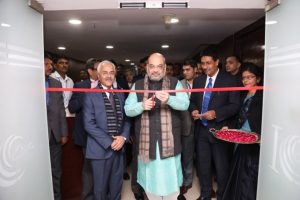 Union Home Minister has inaugurated the National Cyber Crime Reporting Portal and Indian Cyber Crime Coordination Centre (I4C) located in New Delhi. The National Cyber Crime Reporting Portal is a citizen centric vision which enables people to report cyber crimes online. The NCCRP will also provide access of cyber crime related complaints to the law enforcement agencies of the states and union territories to take action according to the law. It will also increase the coordination among the law enforcement agencies of the states and union territories in investigation of cases and resolving them. Presently, 3900 police stations and 700 police districts have been linked with the portal “cybercrime.gov.in”. It constitutes 7 elements: National Cyber Crime Research and Innovation Centre, National Cyber Crime Forensic Laboratory Ecosystem, National Cyber Crime Training Centre, Cyber Crime Ecosystem Management Unit, National Cyber Crime Threat Analytics Unit, National Cyber Crime Reporting Portal and Platform for Joint Cyber Crime Investigation Team. Indian Cyber Crime Coordination Centre (I4C) will manage all kinds of cyber crimes comprehensively in coordinated manner. At the Home Ministry’s initiative, 15 States and UTs have cleared the setting-up of Regional Cyber Crime Coordination Centres. Union Home Minister has inaugurated the National Cyber Crime Reporting Portal and Indian Cyber Crime Coordination Centre (I4C) located in New Delhi. The National Cyber Crime Reporting Portal is a citizen centric vision which enables people to report cyber crimes online. The NCCRP will also provide access of cyber crime related complaints to the law enforcement agencies of the states and union territories to take action according to the law. It will also increase the coordination among the law enforcement agencies of the states and union territories in investigation of cases and resolving them. Presently, 3900 police stations and 700 police districts have been linked with the portal “cybercrime.gov.in”. It constitutes 7 elements: National Cyber Crime Research and Innovation Centre, National Cyber Crime Forensic Laboratory Ecosystem, National Cyber Crime Training Centre, Cyber Crime Ecosystem Management Unit, National Cyber Crime Threat Analytics Unit, National Cyber Crime Reporting Portal and Platform for Joint Cyber Crime Investigation Team. Indian Cyber Crime Coordination Centre (I4C) will manage all kinds of cyber crimes comprehensively in coordinated manner. At the Home Ministry’s initiative, 15 States and UTs have cleared the setting-up of Regional Cyber Crime Coordination Centres. |
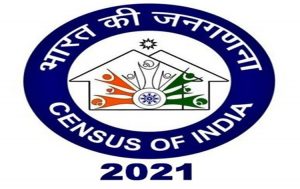 Census exercise India-2021 to begin on 1st April 2020 and will end on 30th of September 2020. Census India-2021 will be conducted through a mobile phone application. The enumerators of the census will seek the information of the mobile number of the head of the family, information related to TV, Internet, vehicles owned, toilets, source of drinking water besides asking other questions during the house listing phase of the exercise. Census exercise India-2021 to begin on 1st April 2020 and will end on 30th of September 2020. Census India-2021 will be conducted through a mobile phone application. The enumerators of the census will seek the information of the mobile number of the head of the family, information related to TV, Internet, vehicles owned, toilets, source of drinking water besides asking other questions during the house listing phase of the exercise. |
 Indian Railways is in the process of installing Internet Protocol (IP) based Video Surveillance System (VSS) at stations to enhance security. Railway Board of India has approved works for provision of Video Surveillance System covering 983 stations over Indian Railways under Nirbhaya funds. This year a budget of Rs. 250 crore was allotted to Indian Railways from Nirbhaya fund for installation of the video surveillance system. In the first phase of installation, VSS is being installed at 200 stations and as on date work has been completed at 81 stations across India. Indian Railways is in the process of installing Internet Protocol (IP) based Video Surveillance System (VSS) at stations to enhance security. Railway Board of India has approved works for provision of Video Surveillance System covering 983 stations over Indian Railways under Nirbhaya funds. This year a budget of Rs. 250 crore was allotted to Indian Railways from Nirbhaya fund for installation of the video surveillance system. In the first phase of installation, VSS is being installed at 200 stations and as on date work has been completed at 81 stations across India. |
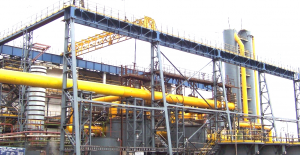 The Cabinet Committee on Economic Affairs (CCEA) has given its ‘in principle’ approval for strategic disinvestment of 4 Central Public Sector Enterprises (CPSEs) & 2 Odisha State PSUs in Neelachal Ispat Nigam Limited (NINL). NINL is a Joint Venture company in which 4 CPSEs & 2 State PSUs have equity shareholding. The 4 CPSEs includes Minerals & Metals Trading Corporation (MMTC), MECON, Bharat Heavy Electricals (BHEL) and National Mineral Development Corporation (NMDC). 2 Odisha State PSUs includes Industrial Promotion and Investment Corporation of Odisha (IPICOL) and Odisha Mining Corporation (OMC). The advances from the disinvestment are expected to finance the development programmes of the Govenrment launched for the public. The Cabinet Committee on Economic Affairs (CCEA) has given its ‘in principle’ approval for strategic disinvestment of 4 Central Public Sector Enterprises (CPSEs) & 2 Odisha State PSUs in Neelachal Ispat Nigam Limited (NINL). NINL is a Joint Venture company in which 4 CPSEs & 2 State PSUs have equity shareholding. The 4 CPSEs includes Minerals & Metals Trading Corporation (MMTC), MECON, Bharat Heavy Electricals (BHEL) and National Mineral Development Corporation (NMDC). 2 Odisha State PSUs includes Industrial Promotion and Investment Corporation of Odisha (IPICOL) and Odisha Mining Corporation (OMC). The advances from the disinvestment are expected to finance the development programmes of the Govenrment launched for the public. |
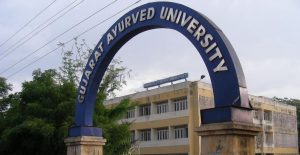 The union cabinet granted the approval making the status of Institution of National Importance to a cluster of Ayurvedic institutions at Gujarat Ayurved University in Jamnagar. With the (INI) status, Jamnagar Ayurveda University will become the first Ayurveda institute to join the ranks of the IIT’s and AIIMS. The status of the institution will provide it with the autonomy to upgrade the standard of Ayurveda education, frame various courses in Ayurveda as per national and international demand. The union cabinet granted the approval making the status of Institution of National Importance to a cluster of Ayurvedic institutions at Gujarat Ayurved University in Jamnagar. With the (INI) status, Jamnagar Ayurveda University will become the first Ayurveda institute to join the ranks of the IIT’s and AIIMS. The status of the institution will provide it with the autonomy to upgrade the standard of Ayurveda education, frame various courses in Ayurveda as per national and international demand. |
 The Union Government has authorized the amount of Rs 5559 crore for 1656 Km long Indradhanush Natural Gas Pipeline Grid project. The amount will be provided as Viability Gap Funding (VGF). The amount will be used to set up Natural Gas Pipeline Grid connecting 8 North Eastern states. The 8 North Eastern states includes: Assam, Arunachal Pradesh, Meghalaya, Manipur, Mizoram, Nagaland, Tripura and Sikkim. The total expenditure of the project is estimated as Rs 9,256 crore and the above sanctioned amount is expected to cover 60% of the project. The Indradhanush Gas Grid project is expected to provide natural gas to different types of customers and will also reduce the dependence on liquid fuels. The Union Government has authorized the amount of Rs 5559 crore for 1656 Km long Indradhanush Natural Gas Pipeline Grid project. The amount will be provided as Viability Gap Funding (VGF). The amount will be used to set up Natural Gas Pipeline Grid connecting 8 North Eastern states. The 8 North Eastern states includes: Assam, Arunachal Pradesh, Meghalaya, Manipur, Mizoram, Nagaland, Tripura and Sikkim. The total expenditure of the project is estimated as Rs 9,256 crore and the above sanctioned amount is expected to cover 60% of the project. The Indradhanush Gas Grid project is expected to provide natural gas to different types of customers and will also reduce the dependence on liquid fuels. |
 The Indian Railways has enhanced security in major railway hubs by installing IP based video surveillance system. The surveillance has been installed in parking areas, entrance and exit platforms, waiting hall and over bridges. The Indian Railways has enhanced security in major railway hubs by installing IP based video surveillance system. The surveillance has been installed in parking areas, entrance and exit platforms, waiting hall and over bridges. |
|
|
|
|
 On January 9, 2020, Indian Railways announced that it will source 1000 MW of solar power and 200 MW of wind power to zonal railways by 2021-22. Also, Kashmir is to be linked with the rest of India through railway network by December 2021. On January 9, 2020, Indian Railways announced that it will source 1000 MW of solar power and 200 MW of wind power to zonal railways by 2021-22. Also, Kashmir is to be linked with the rest of India through railway network by December 2021. |
|
|
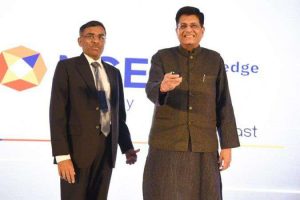 The Union Minister of Commerce and Industries inaugurated the National Stock Exchange (NSE) Knowledge Hub in New Delhi. The National Stock Exchange (NSE) Knowledge Hub is an Artificial Intelligence (AI) powered learning ecosystem that will assist the banking, financial services and insurance (BFSI) sector. The Knowledge Hub will fill in these gaps and help the financial sector to move into the future. It will enhance skills and help academic institutions in preparing future-ready talent for the financial service industry. It is also available on mobile and attempts to bring together world-class content and learners through this state- of- the- art and future-ready platform. This industry-driven learning eco-system will help India in building next-generation skills and capabilities in the BFSI sector. The Union Minister of Commerce and Industries inaugurated the National Stock Exchange (NSE) Knowledge Hub in New Delhi. The National Stock Exchange (NSE) Knowledge Hub is an Artificial Intelligence (AI) powered learning ecosystem that will assist the banking, financial services and insurance (BFSI) sector. The Knowledge Hub will fill in these gaps and help the financial sector to move into the future. It will enhance skills and help academic institutions in preparing future-ready talent for the financial service industry. It is also available on mobile and attempts to bring together world-class content and learners through this state- of- the- art and future-ready platform. This industry-driven learning eco-system will help India in building next-generation skills and capabilities in the BFSI sector. |
| Source: The News on AIR |
You need to login to perform this action.
You will be redirected in
3 sec
